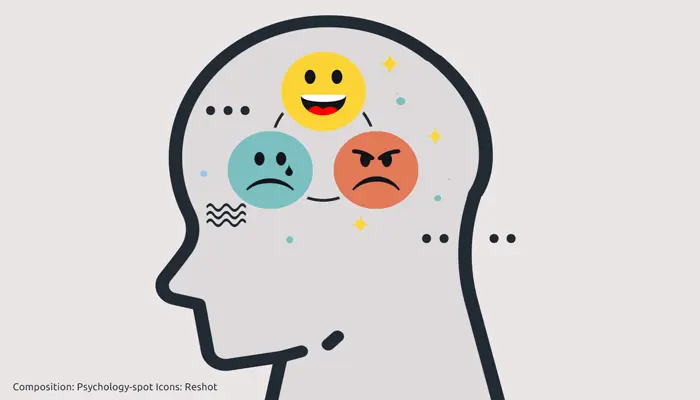
Have you ever reacted badly emotionally without understanding what triggered that response?
Does a person provoke a deep rejection, but you don’t know why?
Lately, have you felt sadder, angry or frustrated?
If so, you are likely to suffer an emotional allergy.
We all know allergies, a defense reaction of the organism to external substances that penetrate the body. When our immune system detects these substances, which can be from a food to pollen, recognizes them as alien and tries to neutralize them triggering a series of symptoms quite annoying.
However, we all have – and we need – an emotional immune system. This system helps us stay safe and avoids, for example, that we invite a complete stranger to our house that could hurt us. When that system works properly, it helps protect us, it serves as a compass to guide our behavior. The problem is that when we experience a very intense situation at emotional level, that system can start to fail us, triggering an emotional allergy.
What is emotional allergy?
The word allergy comes from the Greek, from the words alos and ergos. Alos means another, different, strange. Ergos means reaction. Therefore, the allergy would be nothing more than a reaction to what is different, what is not recognized as its own and that is classified as a potential danger.
At psychological level, the concept of emotional allergy became relevant in the 1950s, mainly from the hand of P. Sivadon, who thought that hypersensitivity to certain emotions becomes a central pathogenic mechanism that ends up triggering other pathologies.
Therefore, the emotional allergy would be an intense reaction, from the emotional point of view, to a person or present situation that reminds us, consciously or unconsciously, a negative and emotionally shocking event of our life history.
People who are more susceptible to certain emotions, generally of negative valence, tend to respond similarly to those who suffer from allergy when exposed to the allergen:
– They experience that negative emotion more often than the average person
– The emotion is activated with numerous stimuli, most of which go unnoticed by the average person or don’t bother him.
– When the reaction has been activated, a full-fledged emotional hijacking occurs; that is, the ability to act rationally is lost
How is this emotional allergy triggered?
The emotional allergy is established in a manner similar to physical allergy: it’s the result of our exposure to an experience that, for some reason, has triggered a strong emotional reaction. Then, whenever we expose ourselves to stimuli that remind us of that experience or generate a similar emotion, we will tend to react excessively at emotional level because a psychological defense mechanism is unleashed.
In this sense, a pioneering study conducted at the University of Wisconsin proposes that the signs of neuroinflammation that accompany Burnout Syndrome, a condition characterized by apathy and extreme exhaustion, respond to an immunological reaction to pathogens of non-somatic origin, that’s why they have described it as an “emotional allergy” response.
Blankert suggests that “People with Burnout Syndrome in the exhaustion phase have become emotionally allergic to some aspects of their work” and that “The intuitive word ‘allergy’ fits very well with the neuroinflammation they suffer, as well as with the general impact that this situation has on the immune system.”
In practice, if a person already has a certain emotional hypersensitivity, the exposure to situations that he considers to be a serious danger, although they may not be so, can generate emotions that, at first seem to be overcome or minimized, but are activated later when another situation occurs that acts as an emotional reminder of the original event, which usually triggers anguish, agitation and confusion.
The consequences of emotional allergy
The reactions triggered by emotional allergy are not rational, so we can act very maladaptively. This is because we are not reacting to the situation itself, but rather it has become a representation of the past situation.
The same goes for a person. In practice, if we have an emotional allergy we will not maintain the relationship with the person who is in front of us but with our past, with all the emotional ballast that that person activated, without realizing it, of our past. All this can lead us to make bad decisions.
In fact, the difficulty at an emotional level to discern between safe and insecure can cause us to assume unnecessary risks or, on the contrary, that we avoid situations that would be beneficial and developing.
To this is added that, according to Sivadon, emotional allergy is often the prelude to more serious mental problems, such as panic attacks or post-traumatic stress disorder. If we cannot detect those emotional allergens, they will end up escaping our control. It’s probable that this allergy loses its specificity little by little and widens its field of action, becoming an increasingly broad intolerance to different emotions activated by stimuli that are always more varied.
How to prevent the emotional allergy from getting worse?
There are different ways to prevent the emotional allergy from getting worse. The technique of systematic desensitization is usually very effective, as it happens for many physical allergies. It consists in exposing oneself, in a controlled way, to the stimuli that trigger those negative emotions.
If the emotional reaction is very intense, the first exercise is done mentally, only by visualizing the situation or the person that generates those emotions. Then you can move to reality, dosing the degree of exposure so that anxiety is not so high as to reinforce the problem.
In this way we can, on the one hand, become more and more tolerant to the allergen, until it doesn’t cause any reaction and, on the other hand, we develop our resilience, we learn to better manage our emotions, so that instead of becoming our enemies, can fulfill their protective role.
Sources:
Blankert, J. P. & (2014) Neuroinflammation in burnout patients. Conference: Breakthroughs in burnout researcht. At Hoogstraten; 1.
Sivadon, P. (1953) La notion d’allergie émotionnelle. AMP; 111: 239-40.



